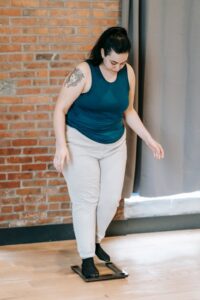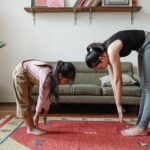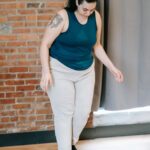The Benefits of Regular Physical Activity: Boost Your Health and Happiness 💪
Welcome to our deep dive into the world of physical activity! We all know that moving our bodies is good for us, but have you ever stopped to consider all the amazing benefits that come with regular exercise? Whether you’re a seasoned athlete or just starting your fitness journey, understanding these benefits can help keep you motivated and on track.
Table of Contents
1. Introduction
2. Physical Health Benefits
3. Mental Health Boosts
4. Social and Emotional Perks
5. Creating a Sustainable Routine
6. Conclusion
7. FAQ
Physical Health Benefits 🏃♂️
Engaging in regular physical activity does wonders for your body. Here are some of the key benefits:
Improved Cardiovascular Health ❤️
Exercise strengthens the heart, improves blood circulation, and helps maintain healthy blood pressure levels. This reduces the risk of heart disease and stroke, which are leading causes of death worldwide.
Weight Management ⚖️
Regular physical activity helps you maintain a healthy weight by burning calories and building muscle. Combined with a balanced diet, it can be a powerful tool for weight management.
Increased Strength and Flexibility 🤸♀️
Strength training and flexibility exercises improve muscle mass, bone density, and joint function, reducing the risk of injury and enhancing overall mobility.
Mental Health Boosts 🧠
Exercise isn’t just good for your body; it’s also a powerful ally for your mind.
Stress Reduction 🧘♂️
Physical activity boosts the production of endorphins, the body’s natural mood elevators. This can help reduce stress, anxiety, and depression, leaving you feeling more relaxed and focused.
Enhanced Cognitive Function 💡
Studies show that regular exercise can improve memory, concentration, and overall brain health. This is especially important as we age, helping to keep our minds sharp.
Better Sleep 😴
People who exercise regularly tend to enjoy better quality sleep. Physical activity can help you fall asleep faster and deepen your sleep, leading to more rest and rejuvenation.
Social and Emotional Perks 🤗
Beyond the physical and mental benefits, exercise can also enrich your social and emotional well-being.
Community and Connection 🌍
Joining a fitness class or sports team can open the door to new friendships and a sense of community. Sharing your fitness journey with others can be incredibly rewarding and motivating.
Increased Confidence and Self-Esteem 💪
Achieving fitness goals, no matter how small, can boost your confidence and self-esteem. You’ll feel proud of your accomplishments, which can translate into other areas of your life.
Creating a Sustainable Routine 🔄
To enjoy these benefits, consistency is key. Here are some tips for creating a sustainable exercise routine:
1. Set realistic goals: Start small and gradually increase the intensity and duration of your workouts.
2. Find activities you enjoy: Whether it’s dancing, hiking, or yoga, choosing something you love will keep you motivated.
3. Schedule it: Treat your workouts like important appointments and block out time in your calendar.
4. Listen to your body: Rest when needed and don’t push yourself too hard. Consistency is more important than intensity.
Conclusion 🌟
Regular physical activity is a cornerstone of a healthy lifestyle. From improving your physical health to boosting your mental well-being and enriching your social life, the benefits are vast and varied. So lace up those sneakers, find an activity you love, and start reaping the rewards today!
FAQ 🤔
1. How much exercise do I need each week?
The World Health Organization recommends at least 150 minutes of moderate-intensity or 75 minutes of vigorous-intensity exercise per week, along with muscle-strengthening activities on two or more days a week.
2. Can I benefit from exercise even if I start later in life?
Absolutely! It’s never too late to start. Exercise offers benefits at any age, and it’s especially important for maintaining health and independence in older adulthood.
3. What if I don’t have time to exercise?
Even short bursts of activity can be beneficial. Try breaking your exercise into 10-minute segments throughout the day. Consistency is more important than the duration of each workout.
4. Do I need a gym membership to get fit?
Not at all! Many exercises can be done at home or outdoors. Walking, running, bodyweight exercises, and online workout videos are great options that don’t require a gym.
5. How can I stay motivated to exercise?
Find a workout buddy, set specific goals, track your progress, and reward yourself for reaching milestones. Most importantly, make it fun!













